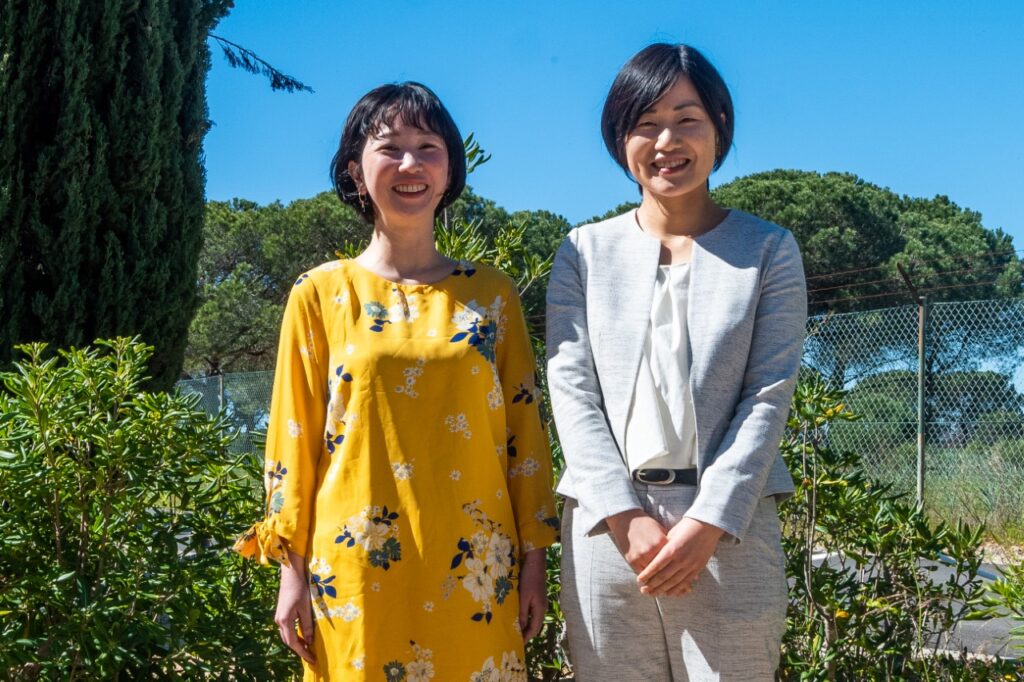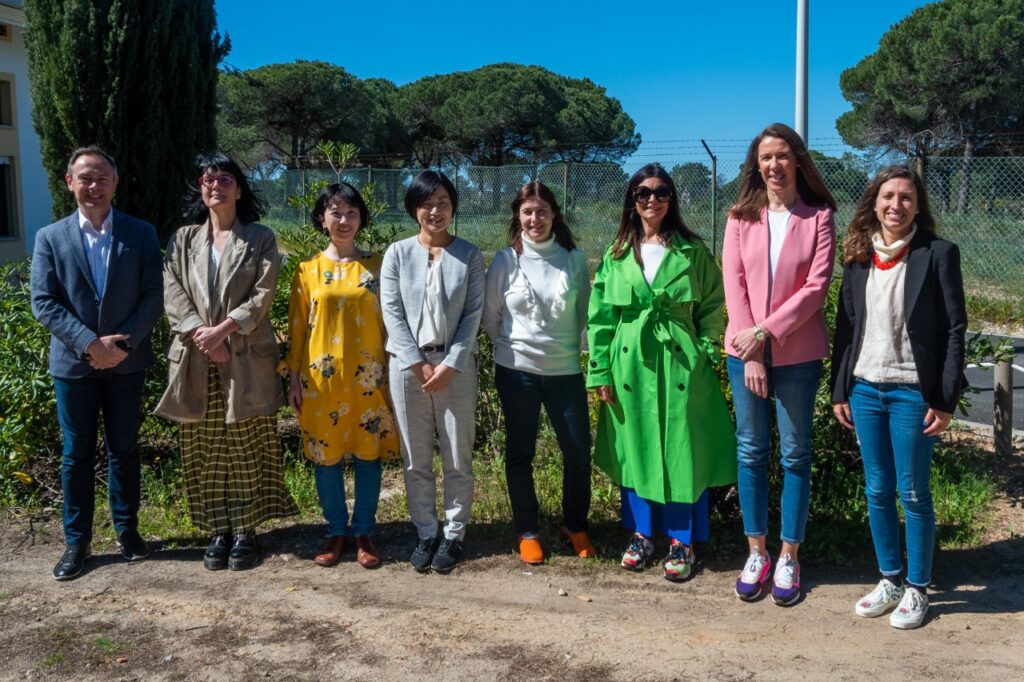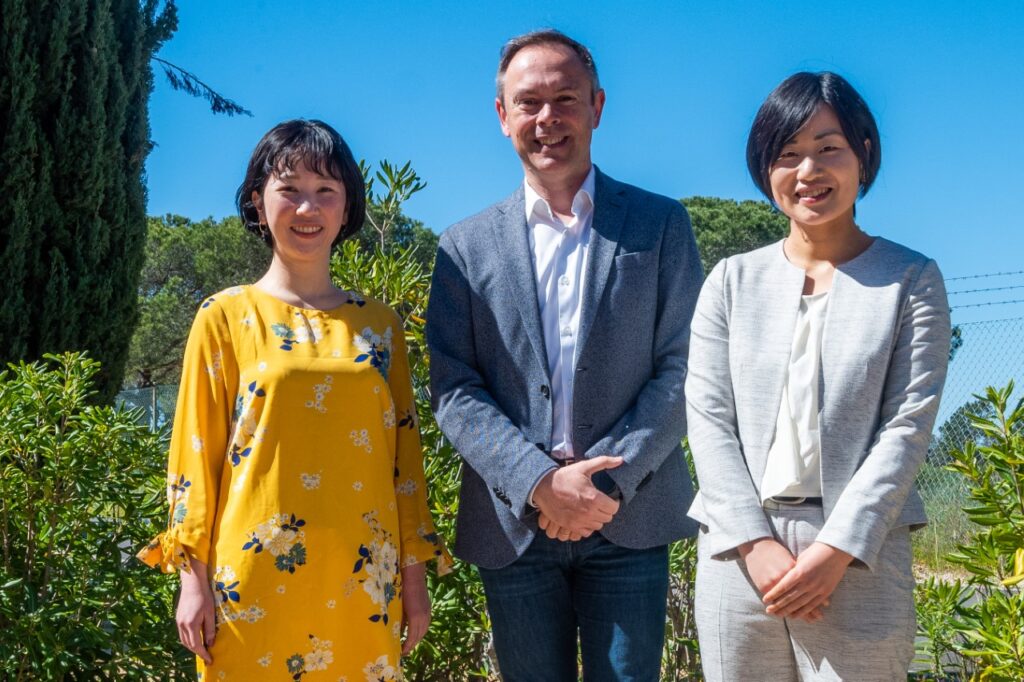Haruka Fujiwara and Emi Kobayashi came from far away and made the long journey between Japan and the Algarve with an (apparently) simple objective: to know what a Participatory Budget is and to learn about good practices for promoting this process of citizen participation.
And it was with the help of Repair Shop, a non-profit association from the Algarve focused on promoting civic participation and citizenship, and from several Portuguese municipalities, that the two Japanese professors and researchers, coming from the Universities of Fukushima and Yokohama, learned more about Participatory Budgets, on a visit to the Algarve and other parts of Portugal, between the 13th and 18th of March.
Part of that time was spent at the University of the Algarve, in whose nest of companies the Oficina is headquartered, getting to know good examples of Participatory Budgets that take place in different Portuguese municipalities.
«I was very impressed with the Portuguese experience of participatory budgeting. I found the system very sophisticated », she told the Sul Informação Haruka Fujiwara, who finds parallels between the budget systems of Portugal and Japan, «which may make it possible to introduce the Portuguese model of PB in Japanese municipalities».
Hakura Fujiwara and Emi Kobayashi did not choose the Algarve and its university by chance. «We chose Portugal because we read the World Atlas of Participatory Budgets created by Oficina and we realized that your country had good practices, including comparing with other countries in Europe. In this way, we thought we could get more ideas when visiting Portugal».
The document referred to by the two academics from Japan was prepared by Oficina, an organization that was founded and is led by sociologist Nelson Dias, former president of In Loco and a specialist in participation and citizenship, namely in Participatory Budgets, who is linked to to dozens of processes of this nature, not only in Portugal, but on four continents.
“There are several municipalities in Japan interested in starting processes of this nature. There is a municipality in the Tokyo Metropolitan Area whose president decided to implement the PB and preparations are already being made for it to start next year», according to Hakura Fujiwara.
The objective is «to learn and, later, propose to the municipalities a system and strategies for Participatory Budgeting».

Hakura Fujiwara and Emi Kobayashi «were aware that in Portugal there are many Participatory Budgeting initiatives, some of them with even international interest and relevance. Afterwards, they became aware of the work that the Oficina develops in this area of public participation, not only in Participatory Budgets, but also in other matters. And they asked themselves: “why is Japan not there”? », framed, for his part, Nelson Dias, in statements to the Sul Informação.
The consultant for the World Bank, the UN and the Young Portugal Participatory Budget says that he spoke with the two Japanese researchers, who then decided to organize a visit to Portugal.
«They asked to come here, because the participatory budget processes in Japan are starting. They have other participation initiatives, but not of this nature, in which there is an allocation of public money», explains Nelson Dias.
«What we did here was to prepare a visit in which we explained, on the first day, what a PB is, how it is organized, the conditions that need to be met, what good practices are and what they are bad practices – because we also have them», he framed.
The Oficina also invited several Portuguese municipalities to give their testimony, so that the guests could come into contact with «a certain diversity of cases».
One of them was the Câmara de Tavira, which «is close by and it was possible to have representatives in a room here at the University», a session to which the Sul Informação attended and during which the visitors asked many questions.
The others did it via videoconference, «because it was easier, because of the displacements».

«They were fascinated by what they saw, but also worried about what is behind something like this, because it is not enough to simply say that we are going to do it», he added.
«We are going to focus on a few municipalities, to experiment and try to get started. We cannot spread too much before we have more experience», points out Haruka Fujiwara.
This caution has to do with Japanese culture itself, which is very different from Western culture. Despite the fact that, in Japan, it is a habit to listen to the citizens, the «political agents think that public participation should only be, in fact, a reality, if it improves the efficiency and effectiveness of the State machine», according to the founder of Oficina.
«So they came here to try to understand how this process can help to improve effectiveness and efficiency, because these are the arguments that they will have to use to be able to convince politicians there in Japan», he reinforced.
In other words, it will be necessary to adapt what they saw and heard in Portugal, since the PB, in our country, were designed, «above all, to rebuild trust, in a society that does not trust public administration so much».
Now, the two Japanese academics «They have a lot of information and will work on it».
«Japan will be included in the Atlas with these first initiatives that it is developing. And I think that a door of cooperation between Portugal and Japan has opened here, which could lead to Japanese politicians coming here, to our teams being able to go there. I think that door has opened. There is, at least, the guarantee that they will be part of the Atlas in the next editions», concluded Nelson Dias.



















Comments